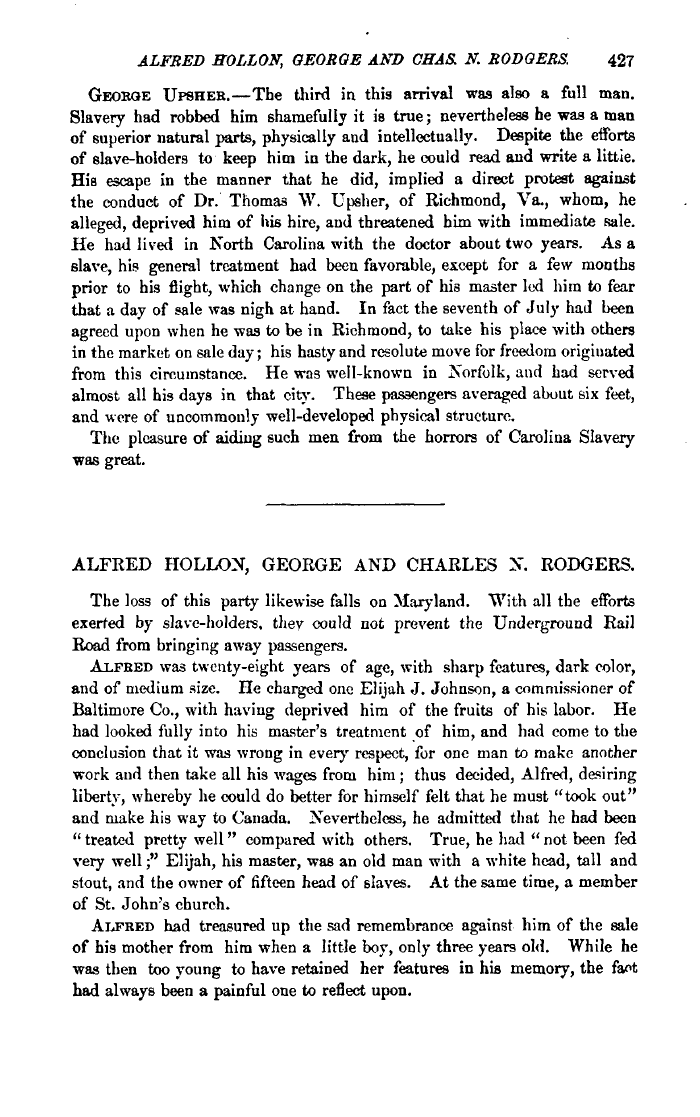 |
||||
 |
||||
| ALFRED HOLLON, GEORGE AND CHAS. N. RODQERS. 42? GEORGE UPSHER.—The tliird in this arrival was also a full man. Slavery had robbed him shamefully it is true; nevertheless he was a man of superior natural parts, physically and intellectually. Despite the efforts of slave-holders to keep him in the dark, he could read and write a little. His escape in the manner that he did, implied a direct protest against the conduct of Dr. Thomas W. Upsher, of Richmond, Va., whom, he alleged, deprived him of his hire, and threatened him with immediate sale. He had lived in North Carolina with the doctor about two years. As a slave, his general treatment had been favorable, except for a few months prior to his flight, which change on the part of his master lod him to fear that a day of sale was nigh at hand. In fact the seventh of July had been agreed upon when he was to be in Richmond, to take his place with others in the market on sale day; his hasty and resolute move for freedom originated from this circumstance. He was well-known in Norfolk, and had served almost all his days in that city. These passengers averaged about six feet, and were of uncommonly well-developed physical structure. The pleasure of aiding such meu from the horrors of Carolina Slavery-was great. ALFRED HOLLOX, GEORGE AND CHARLES X. RODGERS. The loss of this party likewise falls on Maryland. With all the efforts exerted by slave-holders, they could not prevent the Underground Rail Road from bringing away passengers. ALFBED was twenty-eight years of age, with sharp features, dark color, and of medium size. He charged one Elijah J. Johnson, a commissioner of Baltimore Co., with having deprived him of the fruits of his labor. He had looked fully into his master's treatment of him, and had come to the conclusion that it was wrong in every respect, for one man to make another work and then take all his wages from him; thus decided, Alfred, desiring liberty, whereby lie could do better for himself felt that he must "took out" and make his way to Canada. Nevertheless, he admitted that he had been " treated pretty well" compared with others. True, he had " not been fed very well;" Elijah, his master, was an old man with a white head, tall and stout, and the owner of fifteen head of slaves. At the same time, a member of St. John's church. AURED had treasured up the sad remembrance against him of the sale of his mother from him when a little boy, only three years old. While he was then too young to have retained her features in his memory, the faot had always been a painful one to reflect upon. |